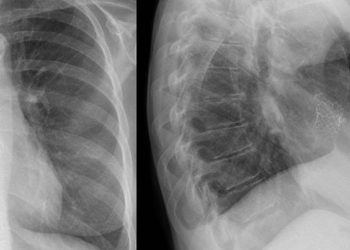Spironolactone use associated with improved outcomes for patients with HFpEF and resistant hypertension
1. Among patients with HFpEF and resistant hypertension, administration of spironolactone was associated with a reduced risk of composite cardiovascular events, all-cause mortality, and hospitalization for heart failure.
Evidence Level Rating: 2 (Good)
Heart failure with preserved ejection fraction (HFpEF) and resistant hypertension, a salt-retaining condition secondary to inappropriate aldosterone secretion, commonly co-occur, complicating medical management. This study represents a secondary analysis of the Treatment of Preserved Cardiac Function Heart Failure with an Aldosterone Antagonist (TOPCAT) study, a randomized study from 2014 demonstrating that spironolactone, an aldosterone antagonist commonly used in the management of heart failure, does not have a mortality benefit for patients with HFpEF. The aim of this current analysis was to assess whether spironolactone use leads to improved outcomes among patients specifically with HFpEF and concomitant resistant hypertension. The primary outcome was a composite of cardiovascular death, aborted cardiac arrest, and hospitalization for heart failure. From the original TOPCAT cohort, 3,146 patients had HFpEF and hypertension, of whom 1,004 had HFpEF and resistant hypertension (median [IQR] age = 69 [61-76] years, 51.9% female). The risk of the primary outcome among patients with HFpEF and resistant hypertension was significantly lower in the spironolactone group than in the placebo group (HR 0.70, 95% CI 0.53 to 0.91, p = 0.009). However, the risk of the primary outcome among patients with HFpEF without resistant hypertension was not significantly different between the spironolactone and control groups (HR 1.00, 95% CI 0.83 to 1.20, p = 0.97). With regards to specific outcomes, the risk of all-cause mortality and hospitalization for heart failure was significantly lower in the spironolactone group for patients with HFpEF and resistant hypertension, but not for those without resistant hypertension. These data suggest that spironolactone may be an appropriate add-on medication for patients with HFpEF and resistant hypertension already taking ACEIs/ARBs, CCBs, and diuretics.
Click to read the study in JAHA
Image: PD
©2020 2 Minute Medicine, Inc. All rights reserved. No works may be reproduced without expressed written consent from 2 Minute Medicine, Inc. Inquire about licensing here. No article should be construed as medical advice and is not intended as such by the authors or by 2 Minute Medicine, Inc.







